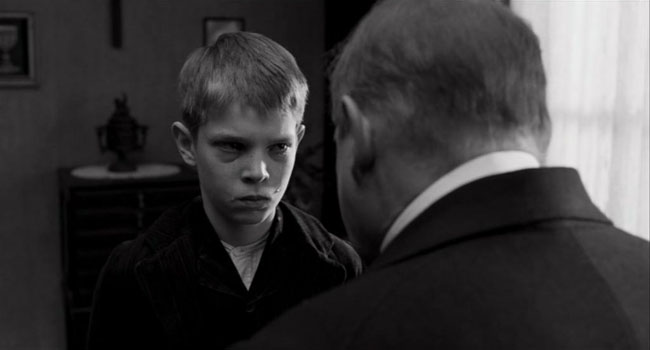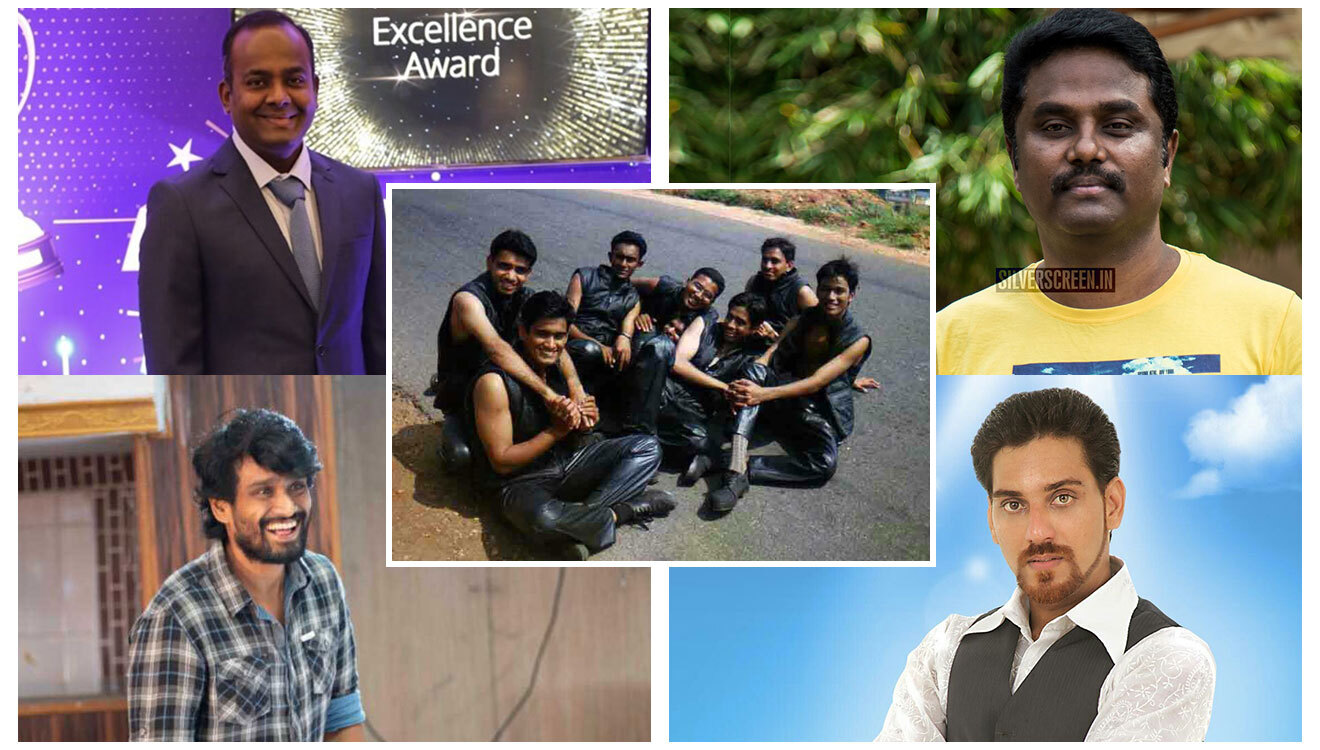“Do you believe in the notion of a happy family?” I asked Koji Fakuda, the Japanese director who made Harmonium, a gripping drama which is still making waves at film festivals across the world.
It was February 2017, and the press screening of the film at the International Film Festival Of Rotterdam had just concluded. “I am not sure, “he said. “But there is something I am sure about. Contrary to popular belief, a normal family life doesn’t always make a person feel less lonely. They might be sharing a house, food and a routine life; but it’s possible that each person in the family is emotionally isolated in a certain way,” he said.
Harmonium is the dark tale of an ordinary middle-class Japanese family living in a sleepy countryside. The opening scene has a little girl, Hotaru, practicing piano, with her father Toshio and mother Aki at the breakfast table, listening (or not). The setting appears calm and normal. The family don’t look too excited about life. Nor is there any visible gloom. They are like the people you run into on the street – nondescript, without a past worth a filmic narration.
One morning, Yasaka, an old friend of Toshio’s arrives, dressed in a spotless white shirt. Slowly, he encroaches into Toshio’s uneventful life, and all too soon, the family is overturned by the knowledge of Toshio’s hidden past, a rape attempt, and adultery.
Fakuda exposes the complexities of human life through this tragedy that swallows Toshio’s family.
Michele Haneke’s White Ribbon is a masterpiece about how a series of crimes that happened in a German village predicted the Nazi rule and Holocaust. The most chilling scene in the film has a little boy climbing down the stairs in the middle of the night, calling out to his elder sister, only to find her on their father’s bed. The girl gently asks him to go back. The film unfolds through a junior teacher’s quest to understand why a peaceful society would implode, through a series of violent incidents like this one.
***
Even as most crime stories are set around working-class protagonists, or else framed as high-profile crimes orchestrated by gangster lords from the elite class, tales of the criminal tendencies of the middle-class are rarely talked about. These are the people who self-identify as law-abiding and upstanding citizens. They are the ones who routinely indulge in crimes like tax evasion, shoplifting, and traffic violations.
As American criminologist Edwin Sutherland notes, the crime of the middle classes was under-reported and understudied for a long time. “The working class committed crimes such as murder and burglary which can be blamed on poverty or psychology. Middle class criminals are educated, intelligent and well-off. They commit crime because they have access to large sums of money and can trick people,” wrote Sutherland.
“The middle class delinquent is more likely to be defined as ill rather than criminal, as having accidentally strayed from the path of righteousness just the once and having a real chance of reforming,” said Aaron Cicourel, professor emeritus of Sociology at the University of California, in his 1968 research paper, “Power and The Negotiation of Justice”.
***
In India, there is a curious dearth of films about the violence that unfolds in an ordinary middle-class family. In fact, the notion of a “happy family” is the backdrop of nearly every mainstream Indian movie. A film like Hum Aapke Hain Kaun (1994) set the trend for grand displays of the joys of belonging to a family. At the other end of the spectrum is a film like Damini (1993), where every kind of physical, emotional, and mental pressure is brought on a woman to ensure that she remains silent about the abuse and violence within. Damini, in which rape, torture, and murder of a woman is more acceptable than public shame (by speaking of these very things), set no trends.
Probably the only Indian movie comparable with White Ribbon is auteur KG George’s 1985 film Irakal (Victims) where corruption and suppressed tensions in the middle-class family of a powerful rubber baron (Thilakan) threaten to overflow when the youngest scion, Baby, turns into a psychotic murderer.
Irakal shows what can lie behind the happy and prosperous façade of family life that is so frequently built up – something terrible and rotting. Actor-politician Ganeshan played the protagonist in Irakal. The waves of turbulence the family had been constantly pushing beneath the carpet come out when Ganeshan, with the disarming name ‘Baby’, launches into a series of murders in their village. The film ends when the patriarch, played by actor Thilakan, shoots him down in an attempt to weed out the rogue seed.
“George sir got the idea of the film while watching Indira Gandhi’s funeral on TV,” says Lijin Jose, director of Cinemayile Mattoraal, a documentary film based on George’s life and works. “George sir transplanted the story of the Gandhi family – how power corrupted Sanjay Gandhi and led him to do the political crimes he is known to have committed – to an affluent Christian family in Kerala. It’s a powerful script that talks of the violence underlying the relationship between the characters in that family, and within each characters.”
“The dark days of the Emergency were right behind us; the violent image of Sanjay Gandhi and the family inspired the film,” recalled Mr. George, as quoted by The Hindu.
Lijin says, “Irakal is so layered that no one has studied it in entirely yet. It cannot be retold in any other culture or circumstances. The film is so entwined with the sociopolitical affairs of its surroundings. The vast rubber plantations and isolated houses inside them add to the eerie mood.
“There is a scene where Ashokan and Ganeshan smoke ganja inside the plantation. Ganeshan stares at the rubber trees and wonders if the latex is really red in colour, like human blood. The history of exploitation of Dalits and the working class by the brutal plantation owners is so vividly expressed in that line. I see the violence in Baby and his siblings as a reaction to the crimes committed by his father – a cruel, greedy and corrupt planter – to people and nature.”
There is also a general perception of village life as peaceful and idyllic, compared to life in cities, because the former has a tighter and stronger familial setup. This prejudice that happy, close-knitted families do not manufacture criminals is the myth that KG George tried to break through Irakal.
***
Years later, Jeethu Joseph would explore the criminal tendencies of middle-class families through his film Drishyam, in which an ordinary, under-educated cable operator brilliantly covers up a brutal crime committed by his family.
“Though I don’t look at Drishyam as a crime drama, many people have interpreted it to be so,” said Jeethu Joseph. “For me, it’s a man’s struggle to protect his daughter from the hands of law. He has to outsmart a very clever mother, who is a police officer, who is doing everything she can to find her son,” he said. “Every person has the capacity to be a criminal, if he wants to. Georgekutty is usually a law-abiding citizen, like any middle-class family head. He wants to stay away from troubles.”
When Georgekutty breaks the law by covering up the crime, he doesn’t think he has done anything wrong. Instead, he blames the system for offering no security to him and his family. Drishyam, while being a tight-paced thriller, is an excellent study of the middle-class state of mind.
***
Imitaz Ali’s Highway had a protagonist who is haunted by the memories of being sexually abused as a child by a close relative. There is a poignant moment in the climax portion of the film in which Veera (Alia Bhatt) reveals the horrifying memories, and confronts the man who committed the crime in front of the whole family. However, the family members shake their heads in disbelief, because how on earth could a well-off highly reputed family as theirs produce such a criminal? It’s Damini again, where denial and suppression are the family’s only way to forge forward.
Recommended
Monsoon Wedding, which came before Highway, has an even more realistic and complex portrayal of an incident of child abuse in a middle-class household in Delhi. About that film, director Mira Nair had said that she wanted to make a Bollywood film in her own way – and therein lies the distinction.
For in every other way, Monsoon Wedding is the quintessential Bollywood film. It has quick, overflowing comedy, scenes full of colour, characters on the verge of singing and dancing, the hero and heroine meeting at a grand Indian wedding. And yet, it is not mainstream. It doesn’t hide the horrors that can lie behind the brouhaha and bonhomie. Nor does it excuse it.
*****



